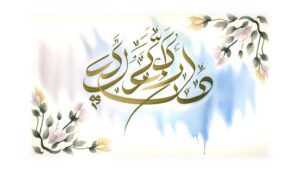Elif Name Meaning in English
The name 'Elif' originates from the Arabic 'Alif,' the first letter of the alphabet, symbolizing beginnings and foundational principles. Etymologically, 'Alif' derives from the Proto-Semitic root *ʾalp, meaning 'ox' or 'leader,' and functions as a glottal stop or long vowel.
Integrated into Turkish as 'Elif,' it retains its phonetic and symbolic significance. Culturally, Elif represents unity, simplicity, and spiritual connection.
Popular in literature and various cultural texts, it symbolizes purity and new beginnings. It has maintained its relevance due to its rich etymology and simple phonetics.
Discover more about its profound legacy further.

Key Takeaways
- Elif means 'beginning' and 'foundational principles,' derived from the Arabic alphabet's first letter, 'Alif.'
- The name symbolizes purity, new beginnings, and simplicity in various cultural texts.
- Elif signifies unity, leadership, and a direct connection to higher spiritual realms.
- It embodies ideals of elegance and strength, representing monotheism in Islamic tradition.
- Elif is a popular name for its profound etymological roots, symbolic significance, and phonetic simplicity.
Origin and Etymology
The name 'Elif' originates from the Arabic alphabet, where it is represented by the first letter, 'Alif,' symbolizing the beginning and foundational principles in various linguistic and cultural contexts.
Etymologically, 'Alif' is derived from the Proto-Semitic root '*ʾalp,' which signifies 'ox' or 'leader,' highlighting its ancient significance. In phonological terms, 'Alif' functions as a glottal stop or a long vowel, emphasizing its versatility in phonetics.
Its adoption into Turkish as 'Elif' retains its phonetic essence while adapting to regional linguistic norms. The shift from 'Alif' to 'Elif' exemplifies the fluidity of language evolution and the importation of symbolic meanings across cultures.
This foundational role underscores its enduring relevance in Arabic and Turkish onomastics.
Cultural Significance
The name Elif holds substantial cultural significance, reflected in its historical background, literary presence, and modern cultural relevance.
From its roots in ancient Semitic languages to its frequent appearances in classical and contemporary literature, Elif has consistently symbolized connectivity and leadership.
In contemporary contexts, the name continues to resonate, embodying a sense of tradition while adapting to modern societal values.
Historical Background of Elif
Historically, the name Elif has deep roots in various cultures, often associated with the Arabic alphabet's first letter and symbolizing beginnings and uniqueness. The etymology of 'Elif' traces back to the Proto-Semitic root *ʔlp, which denotes the first letter in several Semitic languages, including Hebrew (Aleph) and Phoenician. This association with the first letter underscores Elif's symbolic representation of primacy and leadership.
In Ottoman Turkish, Elif was frequently used in calligraphy, denoting elegance and a starting point. Additionally, the cultural significance of Elif extends beyond linguistics, embodying ideals of purity and simplicity. Analyzing Elif through these historical lenses provides a thorough understanding of its enduring resonance across different cultural and temporal contexts.
Elif in Literature
In literature, Elif frequently emerges as a symbol of purity, new beginnings, and foundational principles, reflecting its etymological roots and cultural significance. This symbolic representation can be traced back to its origins in the Arabic script, where Elif is the first letter of the alphabet, often denoting the start of something new and the essence of simplicity. Its literary usage spans various cultural texts, offering rich layers of meaning.
| Aspect | Literary Example | Significance |
|---|---|---|
| Purity | Sufi Poetry | Spiritual clarity |
| New Beginnings | Modern Turkish Novels | Personal transformation |
| Foundational Principles | Classical Arabic Literature | Essential truths |
| Simplicity | Minimalist Poetry | Elegance in brevity |
| Identity | Contemporary Fiction | Individual essence |
This table illustrates the multifaceted literary roles of Elif.
Modern Cultural Relevance
Frequently observed in contemporary contexts, the name Elif retains significant cultural relevance, embodying themes of identity, origin, and continuity across various modern societies.
Etymologically rooted in Arabic, where it denotes the first letter of the alphabet, 'Elif' symbolizes beginnings and precedence. In Turkish culture, Elif is not merely a name but a cultural marker, reflecting values of simplicity and purity.
Its adoption in Western contexts signifies a blend of multicultural influences, attesting to global interconnectedness. Additionally, the name's literary prominence, particularly through works by authors like Elif Shafak, underscores its resonance in modern narratives.
Therefore, Elif continues to serve as a bridge between historical origins and contemporary cultural identity, fostering a sense of unity and heritage.
Symbolism of Elif
The name Elif, rooted in the Semitic language family, carries profound etymological significance linked to the ancient root 'alef,' symbolizing the first letter of the Arabic and Hebrew alphabets.
Its cultural resonance today extends from literary usage in Turkish and Arabic contexts to its embodiment of simplicity and unity in various symbolic interpretations worldwide.
Understanding Elif's multifaceted symbolism necessitates an exploration of its historical origins, contemporary cultural relevance, and diverse global representations.
Root and Origins
Derived from the first letter of the Arabic alphabet, 'Elif' symbolizes unity and the singular nature of existence, reflecting its deep etymological roots and cultural significance.
The term originates from the Phoenician letter 'Aleph,' which was adopted into the Arabic script, becoming 'Elif.' This transformation underscores the historical and linguistic evolution that shapes its current form.
'Elif' in classical Arabic denotes the concept of 'oneness' and is often associated with the divine. Its linear, upright form represents steadfastness and a direct connection to higher domains.
Moreover, the letter 'Elif' serves as a foundational element in Arabic orthography, frequently appearing in various grammatical constructs, thereby reinforcing its intrinsic importance within the language.
Cultural Significance Today
In contemporary culture, 'Elif' embodies a profound symbol of unity and spiritual connection, resonating deeply within both linguistic and philosophical contexts. The name 'Elif' traces its etymological roots to the first letter of the Arabic alphabet, which is also a singular straight line, symbolizing oneness and the divine.
This simple yet profound representation is often associated with the concept of monotheism in Islamic tradition, emphasizing the unity of God. Moreover, in modern linguistic studies, 'Elif' signifies the foundation upon which languages are built, given its status as the initial character.
The name's minimalist form underscores the essence of simplicity and purity, evoking a sense of primordial connection to the universe and one's spiritual self.
Symbolic Interpretations Worldwide
Across various cultures, 'Elif' carries rich symbolic interpretations that reflect its profound historical and etymological significance. In Arabic, 'Elif' signifies the first letter of the alphabet, representing unity and the beginning. In Turkish, it evokes simplicity and elegance, being a common feminine name. The Hebrew equivalent, 'Aleph,' symbolizes leadership and strength, rooted in ancient Semitic traditions.
```markdown
| Culture | Symbolic Meaning | Emotional Resonance |
|---|---|---|
| Arabic | Unity, Beginning | Sense of origin and oneness |
| Turkish | Simplicity, Elegance | Purity and refined beauty |
| Hebrew | Leadership, Strength | Empowerment and resilience |
| Persian | Divine, Sacred | Spiritual connection |
```
These diverse interpretations illustrate 'Elif's' versatility and its capacity to convey profound emotions and values across different cultural landscapes.
Popularity Over Time
The popularity of the name Elif has experienced notable fluctuations over the past several decades, influenced by cultural, linguistic, and societal trends.
Originating from the Arabic letter 'Alif,' its adoption in Turkish and other languages has seen periodic resurgence.
In the late 20th century, Elif gained traction in Turkey as a popular female name, reflecting a cultural revival of traditional names. This was contemporaneous with a broader global interest in unique, culturally rich names.
Sociolinguistic factors, such as media representation and diaspora communities, have also contributed to its varying popularity.
The name's phonetic simplicity and profound etymological roots have guaranteed its continued relevance, even as naming conventions evolve.
Understanding these trends requires examining the interplay between cultural heritage and modern identity.
Variations and Spelling
While examining the variations and spelling of the name Elif, it becomes evident that its adaptations across different cultures and languages reflect both phonetic preferences and etymological influences. Linguistically, Elif can be observed in several forms, each maintaining the core essence of the original name while adapting to regional phonetics. These variations can be traced to historical, cultural, and linguistic contexts, enriching the name's etymology.
| Language | Variation |
|---|---|
| Turkish | Elif |
| Arabic | Alif |
| Hebrew | Aleph |
| Greek | Alpha |
This table highlights how the name Elif, and its variants, have been shaped by different writing systems and phonetic structures, illustrating a fascinating journey through language evolution and cultural adaptation.
Famous Namesakes
Examining the cultural importance and historical evolution of Elif, it is also important to recognize the prominent figures who have borne this name, further enriching its legacy. Among them, Elif Shafak stands out as a notable Turkish-British author whose works have garnered international acclaim. Her literary contributions have greatly influenced contemporary literature, highlighting the versatility and cultural depth of the name.
Additionally, Elif Batuman, an American author and journalist, has also gained recognition for her insightful narratives and journalistic prowess. The name Elif, rooted in the Arabic alphabet as the first letter 'Alif,' symbolizes beginnings and leadership. These namesakes exemplify how individuals carrying the name Elif have made significant impacts in their respective fields, enhancing its etymological and cultural resonance.
Literary References
Many literary works throughout history have incorporated the name Elif, often imbuing characters with qualities of leadership and new beginnings that resonate with the name's etymological roots. In Turkish literature, the name Elif frequently appears as a symbol of resilience and pioneering spirit, aligning with its meaning as the first letter of the Arabic alphabet, signifying a starting point.
Importantly, renowned Turkish author Elif Shafak has not only popularized the name but also embedded its essence into her narratives, where characters often exhibit transformative journeys. In classical Persian poetry, Elif often represents the first step towards enlightenment.
Therefore, across various literary traditions, the name Elif serves as a powerful metaphor for initiation and aspiration.
Modern Usage
In contemporary contexts, the name Elif continues to be embraced across various cultures, maintaining its symbolic significance of leadership and new beginnings. The name's etymological roots in the first letter of the Arabic alphabet, "Aleph," contribute to its modern appeal, symbolizing initiation and primacy. Its phonetic simplicity and melodic quality enhance its adaptability and universal appeal.
| Aspect | Description | Example Usage |
|---|---|---|
| Etymology | Derived from "Aleph" in Arabic alphabet | Symbolizes 'first' |
| Cultural Adaptation | Widely used in Turkish, Arabic, and European contexts | Popular in Turkey |
| Symbolic Significance | Represents leadership and beginnings | Name for leaders |
| Phonetic Qualities | Simple and melodic pronunciation | Easy to pronounce |
This broad acceptance underscores Elif's timeless resonance and enduring charm.
Choosing Elif for Your Child
Parents opting for the name Elif for their child often appreciate its rich etymological roots and profound symbolic significance. Derived from the first letter of the Arabic alphabet, Alif, this name encapsulates notions of initiation and leadership.
The linguistic breadth of Elif extends into diverse cultures, symbolizing unity and beginning. Its phonetic simplicity and aesthetic appeal contribute to its growing popularity.
Additionally, Elif carries a nuanced historical resonance, often associated with literature and poetry, reflecting intellectual depth. When analyzing the choice of Elif, parents may consider its versatility, cultural heritage, and the inherent linguistic elegance it imparts.
Such factors collectively make it a compelling choice, embodying both tradition and modernity in a single, evocative term.
Conclusion
The name Elif, with its rich etymology and cultural significance, has gained notable popularity, particularly in Turkish-speaking regions. Symbolically representing the first letter of the Arabic alphabet, it conveys notions of beginnings and singularity.
Surprisingly, in 2020, Elif ranked among the top 50 names for newborn girls in Turkey, reflecting its enduring appeal. The name's variations and presence in literature further underscore its versatility and timelessness, making it a meaningful choice for many parents.






